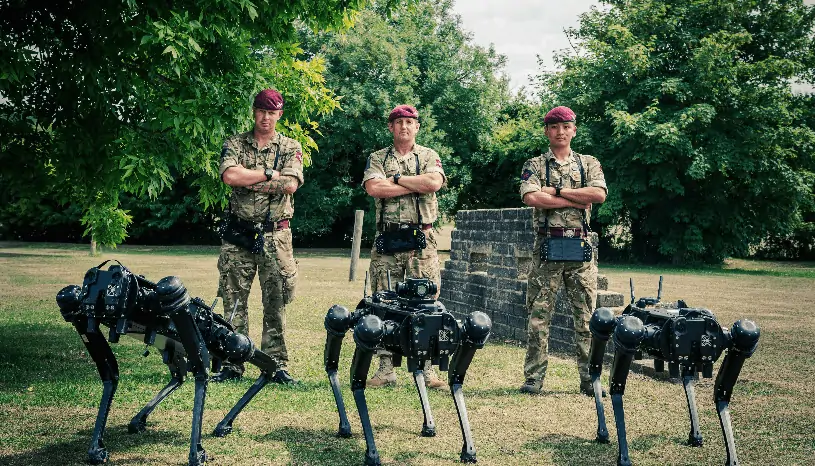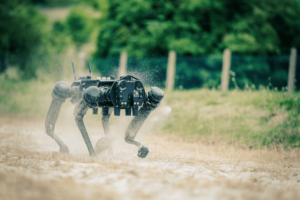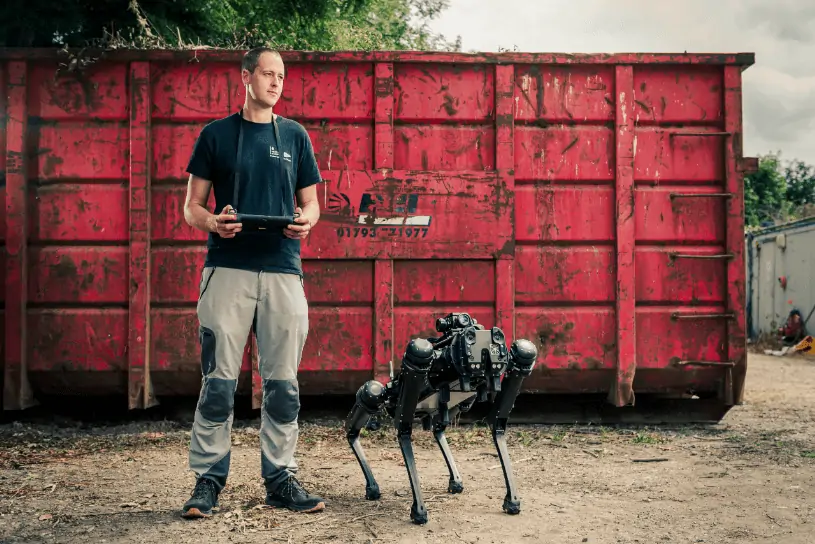
Experts from the DE&S Expeditionary Robotics Center of Expertise (ERCoE) have joined forces with soldiers from the 23 Parachute Engineer Regiment to test potential use cases of the Ghost Robotics robot dog for the British Army.

The state-of-the-art V60 Quadruped system is designed to navigate complex urban and natural terrains, boasting a top speed of 3 m/s and a max payload of 10kg. The V60 is an agile and durable all-weather ground robot equipped to deploy by parachute, helicopter, and air landing.
The bio-mechanisms of the robot dog offer interchangeable legs and arms, with potential add-ons such as Light Detection and Ranging (LiDAR) imaging systems, allowing users to map out a 3D image of their environment and assess potential dangers.
Controlled by an operator at all times using a control pad, the robot dog features cameras on the front, rear and sides, offering 360 views.
“In the modern battlespace, robotics are becoming increasingly important in allowing soldiers to operate faster, for longer. The Ghost V60 quadruped offers increased situational awareness for soldiers on the ground. It has the potential to act as the eyes and ears for military personnel on the frontlines – increasing accuracy in identifying and acquiring targets,” said Dave Swan, Lead Engineer, Future Capability Group (FCG) Expeditionary Robotics Center of Expertise. “This offers many potential use cases for the British Army, from delivering mission-critical supplies, scoping out hazardous areas, or performing combat tasks that are deemed too dangerous for humans. Ultimately, the Ghost V60 quadruped is designed to reduce the risk-to-life and the burden on military personnel.”
FCG are trialing both Boston Dynamics’ SPOT robotic dog and Ghost Robotics’ V60 Quadruped in several use-case areas for the frontline commands.



















